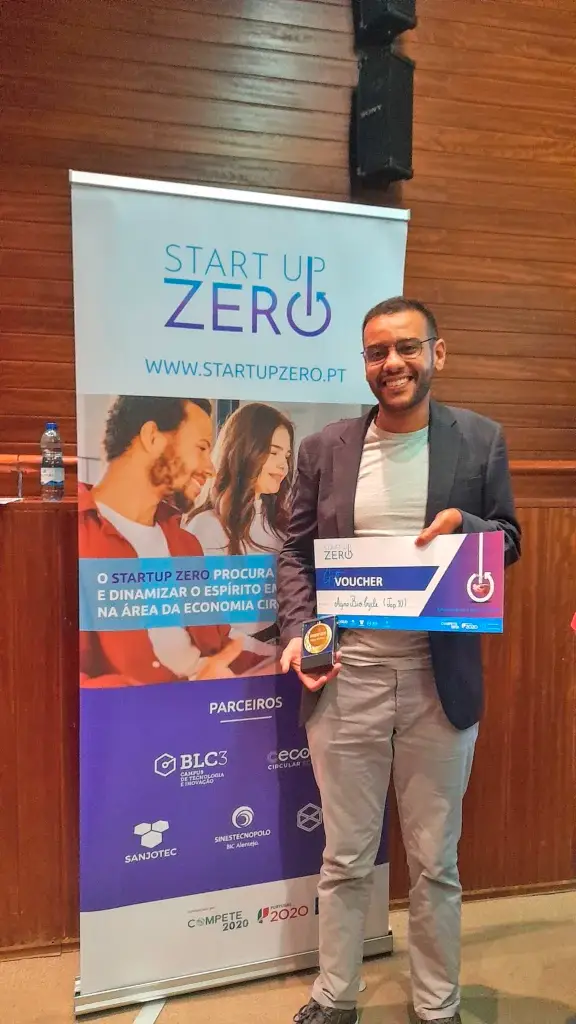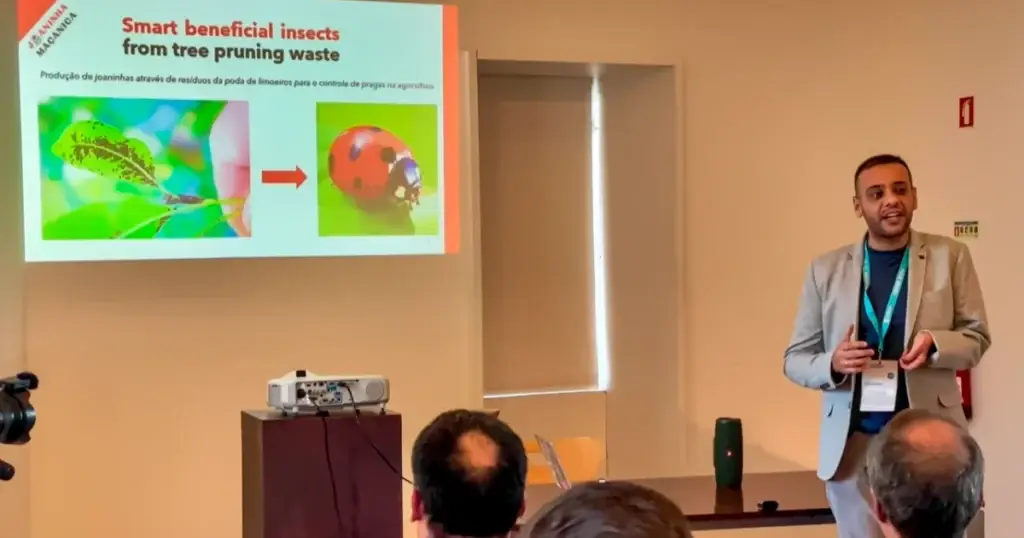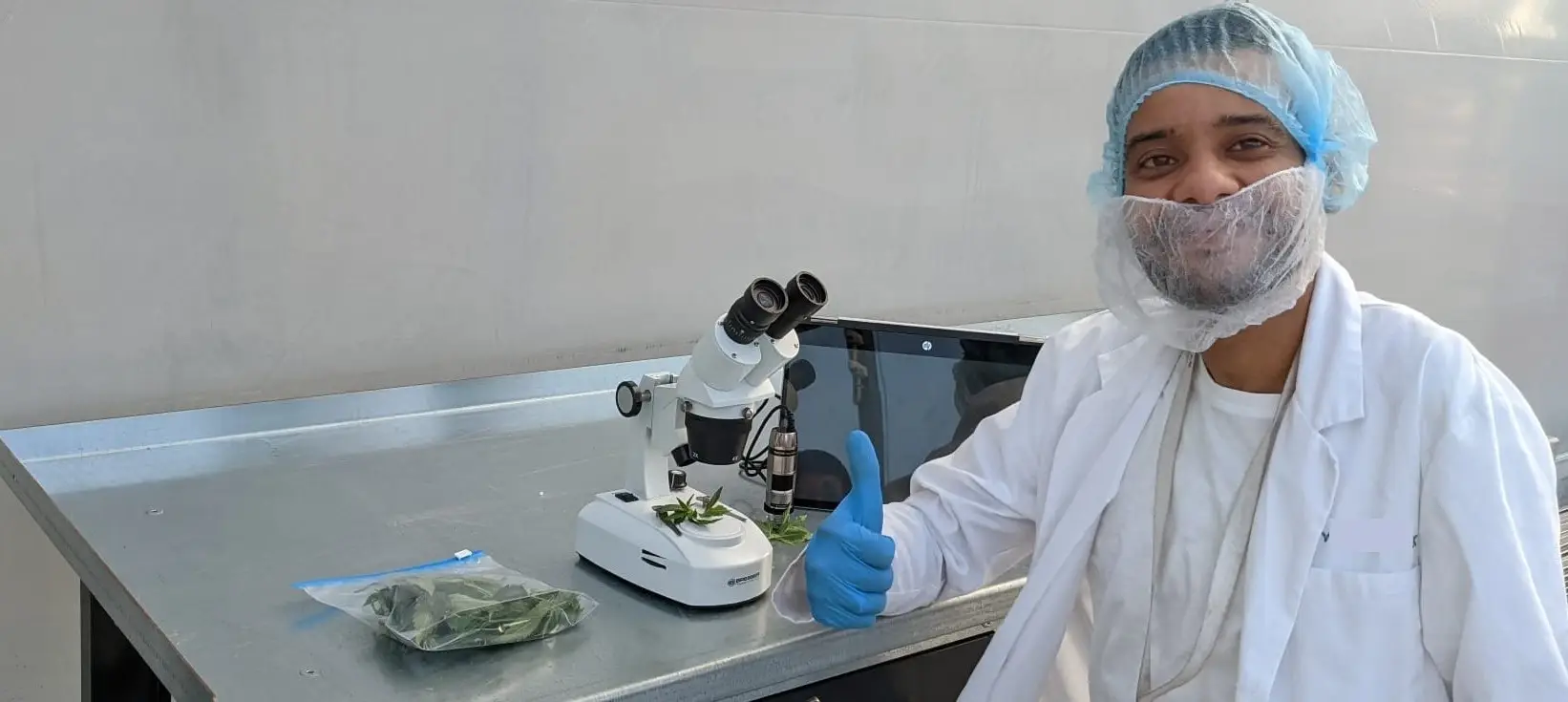About | Abdelkader Meni Mahzoum
Hello, I’m Dr. Abdelkader Meni Mahzoum, I am an Entomologist with a PhD in Ecology and Biodiversity. My professional life has been dedicated to bridging the gap between scientific knowledge and on-the-ground farming practices, all with one core mission: achieving profitable agriculture with less insecticides.
For too long, the agricultural sector has been trapped in a cycle of reliance on chemical sprays—a costly, environmentally harmful, and ultimately unsustainable approach to pest control. My work is focused on replacing this cycle with a robust, biological, and strategic method: Integrated Pest Management (IPM).
About Integrated Pest Management (IPM)?
Integrated Pest Management is the future of sustainable agriculture. It moves beyond simply reacting to a pest outbreak and focuses on proactive prevention and long-term ecological balance. The goal is to maximize crop yield and quality while minimizing economic and environmental risks.
- The Disease Triangle: A Blueprint for Prevention
Before we apply any treatment, we must understand the three factors that must align for a pest or disease outbreak to occur:
The Environment: This includes humidity, temperature, soil conditions, and light. Optimizing the microclimate of your crops can often be the single most effective way to prevent pest proliferation.
The Host: A healthy plant is naturally more resilient to attack. We focus on nutrient balance, proper irrigation, and selecting robust varieties.
The Pest: By accurately identifying the specific pest species, we can exploit its unique weaknesses and apply highly targeted, low-impact solutions, drastically helping you to reduce insecticides.
By manipulating the first two points, we often eliminate the third—the problem—before it even starts.
- The IPM 7-Step Process: Your Systematic Roadmap
The core of my program is a systematic, proven methodology that guides every decision you make in the field. This process is designed to turn pest control into a data-driven, manageable operation, making Integrated Pest Management easy and accessible:
Prevent: Implement cultural, physical, and biological controls to minimize pest risk.
Inspect: Conduct routine scouting to catch emerging issues early.
Identify: Accurately determine the pest species and life stage.
Analyse: Assess the level of infestation and determine the acceptable damage threshold.
Treat: Apply the most judicious control method, prioritizing biological control agents, natural enemies, and targeted low-risk products.
Evaluate: Measure the effectiveness of the treatment against your initial analysis.
Document: Record all steps for continuous improvement, turning every season into a valuable lesson.
My Mission: Profitable Agriculture with Less Insecticides

Ultimately, my expertise in Ecology and Biodiversity is leveraged to support your bottom line. Farmers cannot afford to sacrifice yield for sustainability. The beauty of a well-executed IPM system is that it achieves both:
Cost Reduction: By shifting away from frequent, costly chemical treatments.
Yield Protection: By using targeted, precise methods that are often more effective than broad-spectrum sprays.
Market Advantage: By producing healthier, more sustainable crops that meet the growing consumer demand for food grown with less chemical residue.
Why This Approach Matters: The Broader Impact

The importance of reducing pesticide dependency extends far beyond individual farms or immediate economic considerations. Excessive pesticide use contributes to biodiversity loss, water contamination, soil degradation, and the development of resistant pest populations. These environmental costs ultimately translate into economic burdens that affect entire communities and future generations.
Furthermore, the health implications of pesticide exposure for farmworkers and consumers have become increasingly apparent through scientific research. By providing farmers with effective alternatives, we can protect human health while maintaining agricultural productivity. This represents a win-win scenario that benefits producers, consumers, and the environment simultaneously.
The economic advantages of IPM extend beyond reduced chemical costs. Healthy ecosystems with diverse beneficial insect populations provide natural pest suppression services that would be expensive to replicate artificially. Soil health improvements from reduced chemical inputs enhance long-term productivity and reduce fertilizer requirements. Consumer preference for sustainably produced food often translates into premium market prices.
Looking Forward: Building a Sustainable Agricultural Future

Through this website and my ongoing work, I aim to make IPM knowledge accessible to farmers, agricultural advisors, and anyone interested in sustainable food production. The transition from chemical-dependent agriculture to integrated management systems requires education, support, and practical guidance. My role is to bridge the gap between scientific research and practical implementation, providing tools and knowledge that farmers can immediately apply in their operations.
The future of agriculture depends on our ability to produce food sustainably while protecting the natural resources upon which farming ultimately depends. This requires a fundamental shift in how we think about pest management, moving from reactive chemical treatments to proactive ecosystem management. Through education, demonstration, and continuous innovation, we can achieve this transformation while ensuring that farmers remain profitable and productive.
Every farmer who adopts IPM practices contributes to a larger movement toward sustainable agriculture. Every reduction in pesticide use represents a step toward healthier ecosystems, safer food, and more resilient farming communities. This collective impact creates positive change that extends far beyond individual operations, influencing entire agricultural regions and contributing to global sustainability goals.
The knowledge and techniques I share through this platform represent decades of research, practical experience, and collaboration with farmers worldwide. By making this information accessible and actionable, we can accelerate the adoption of sustainable practices and create a more sustainable future for agriculture. Together, we can prove that profitable farming and environmental responsibility are not just compatible but mutually reinforcing goals that benefit everyone involved in the food system.
